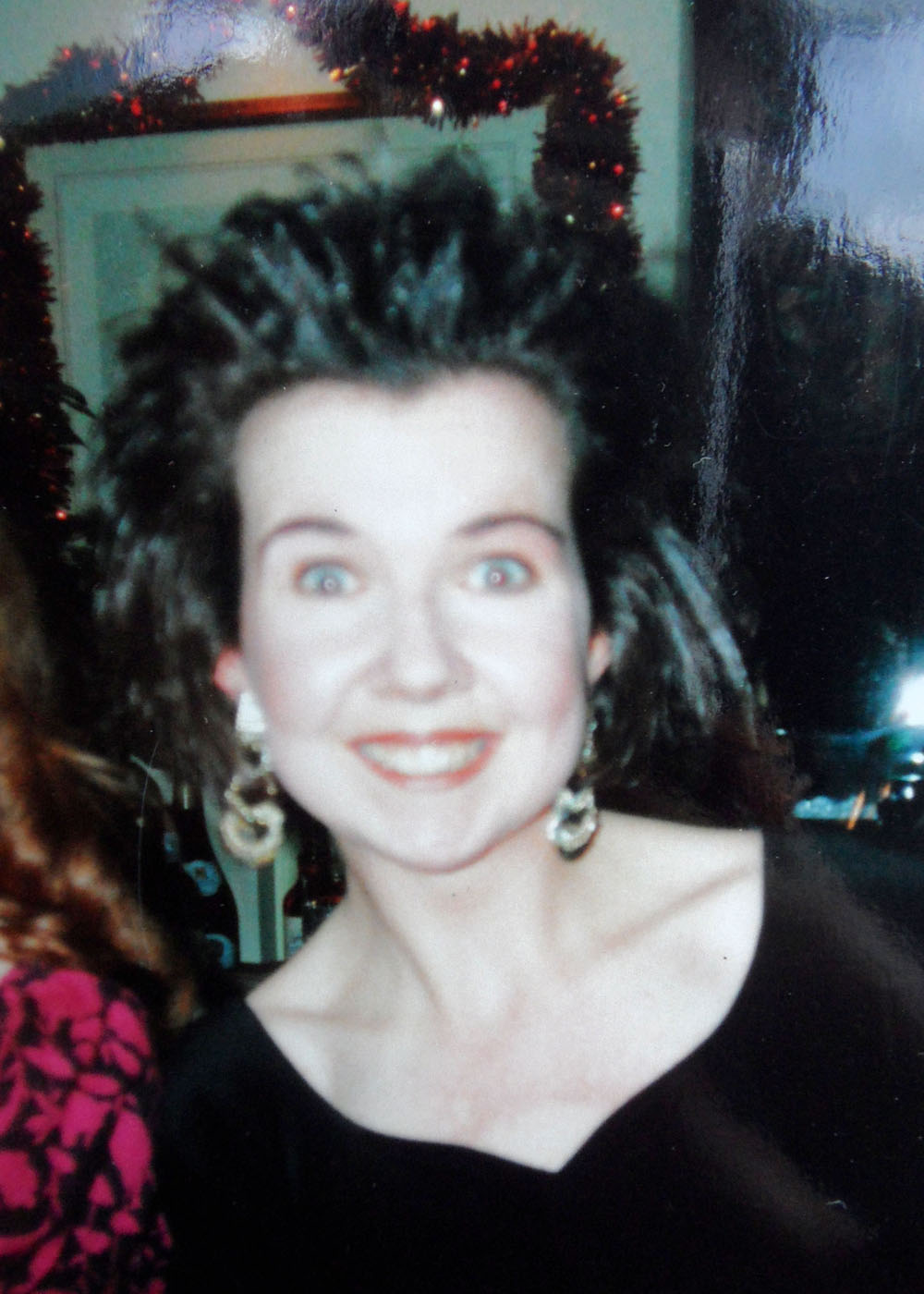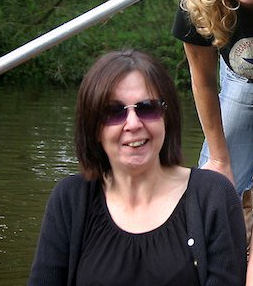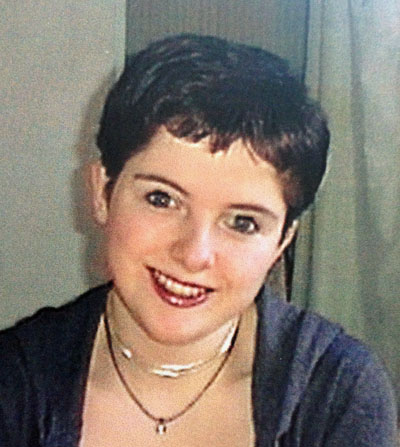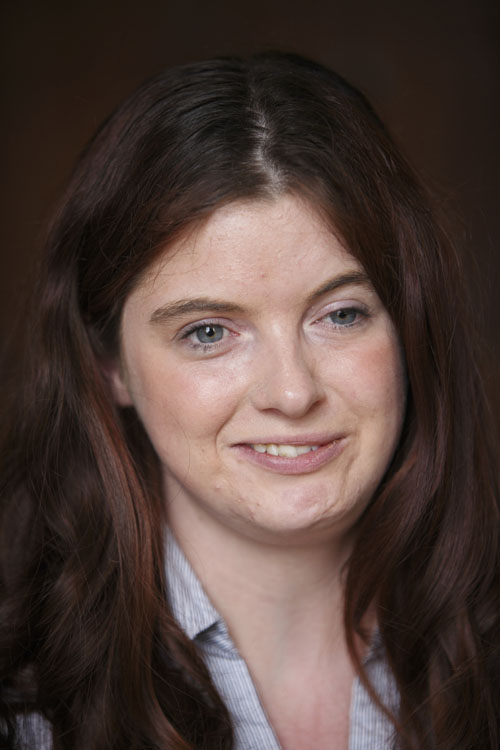Two Women, Six Episodes of Bell’s Palsy – A Wish List for Future Care
News provided by Facial Palsy UK on Tuesday 11th Jun 2013
Nicola Hawkes (40) and Laura Hickey (30) have both been battling Bell’s palsy, the most common form of facial paralysis, since the age of 17. Both have experienced three episodes of this life-altering condition and are left with permanent residual problems. They shared their stories with Facial Palsy UK, a new charity, whose mission is to ensure that every person in the UK affected by facial palsy is given access to the best information, treatment and support available. Nicola and Laura believe that healthcare guidelines for those diagnosed with Bell’s palsy could be significantly improved. The condition is often dismissed as temporary even though a significant proportion of people (approx. 28%) never recover completely.
It was the day before Nicola’s 18th birthday when Bell’s palsy struck for the first time and she happily made a full recovery. But after the second episode, aged 23, she was left with facial weakness , twitching nerves, and a very watery eye. Nicola went back to her GP and was referred to a general physiotherapist who did her best to help but had limited experience in this area. At age 36 Bell’s palsy struck without warning for a third time and this time Nicola completely fell apart emotionally. Doctors didn’t know why the Bell’s palsy kept returning and after running some tests to rule out more sinister causes, she was left to get on with it. Nicola was unaware until recently that there are specialist services for patients who suffer long-term complications after Bell’s palsy.
Nicola says: “Third time around, it was not only me finding the whole situation upsetting, I had a 9 year old son to worry about too. He found it REALLY hard and would often say, "Mummy, I can't remember what you look like!" It hurt so, so much. I’m 40 now, my face remains very weak (the nerves cause unsightly wrinkling). If the weather is cold or I’m not well, it appears worse, and I still experience some pain, a sore watery eye and weakness on one side of my mouth. I have received no follow-up care.”
Laura Hickey was enjoying a new job in promotions when Bell’s palsy first struck at age 17. Prescribed medications and advised to rest, she was reassured by her GP that things would return to normal in a few weeks, it never happened and Laura’s career plans had to change. Aged 21 and just learning to live with her altered face, Bell’s palsy struck again. Second time around she was again told it would disappear in a few weeks, even though she hadn’t recovered fully previously! After the third episode, age 27, there was no reassuring comment that it would be gone in a few weeks. Laura has since found a specialist Facial Palsy clinic by searching online, she took the details to her GP and asked for a referral, and has been having treatments over the past 2-3 years which have really helped.
Laura says: “I have seen real improvements thanks to Botox® injections and physiotherapy. I look better, and as a result I feel more confident, with an improved ability to express myself and communicate. I am also able to close my eye and go out in the cold without the pain and discomfort I'd previously experienced.”
Laura and Nicola suggest the following information would benefit patients diagnosed with Bell’s palsy:
- Information about how to tape your eye closed and also how to use eye drops properly
- For GPs to be better informed about latest research, i.e. the benefits of taking steroids within the first 72hrs.
- Advice on pain relief
- Advice on what are normal symptoms, like tingling sensations, whooshing noises in your ear, facial pain, lethargy, etc.
- Realistic prognosis rather than just blanket assurances that it will be gone in a few weeks
- A routine follow-up appointment so that further treatment options such as physiotherapy/Botulinum toxin injections/facial retraining can be offered where appropriate
- Advice on where to find support, the psychological aspect is something that not many doctors consider.
ENDS
Note to Editors:
Nicola's story
Laura's story
About Facial Palsy UK
Facial Palsy UK is a new charity launched in 2012.
For more information please contact media@facialpalsy.org.uk
Tel: 0300 030 9333
Charity Aims:
- To increase awareness of facial palsy and its social, physical and psychological consequences.
- To provide information and support for people living with facial palsy, their relatives, carers and medical professionals.
- To promote diagnosis, acute and long-term management and rehabilitation of people living with facial palsy.
- To establish support groups throughout the UK.
- To raise funds to support research and training for professionals involved in the diagnosis, management and treatment of facial palsy. This should allow for better treatments, which should be made accessible to all.
Further information about Bell’s palsy recovery rates
Bell’s palsy is the most common cause of facial paralysis, a condition that can resolve with the right treatment, but not in every case. The outcome for a person with Bell’s palsy can be dependent on getting the correct treatment within 72 hours. The largest scale recent study(1) of Bell’s palsy demonstrated that without the recommended treatment with steroids, only 57% achieved full recovery at 12 months. Even with timely treatment, only 72% of patients achieved full recovery at 12 months. For those who do not fully recover, they are often left with chronic disability.
1 - Engström M, Berg T, Stjernquist-Desatnik A, et al.Prednisolone and valaciclovir in Bell's palsy: a randomised, double-blind, placebo-controlled, multicentre trial. Lancet Neurol 2008; 7(11): 993–1000.
It was the day before Nicola’s 18th birthday when Bell’s palsy struck for the first time and she happily made a full recovery. But after the second episode, aged 23, she was left with facial weakness , twitching nerves, and a very watery eye. Nicola went back to her GP and was referred to a general physiotherapist who did her best to help but had limited experience in this area. At age 36 Bell’s palsy struck without warning for a third time and this time Nicola completely fell apart emotionally. Doctors didn’t know why the Bell’s palsy kept returning and after running some tests to rule out more sinister causes, she was left to get on with it. Nicola was unaware until recently that there are specialist services for patients who suffer long-term complications after Bell’s palsy.
Nicola says: “Third time around, it was not only me finding the whole situation upsetting, I had a 9 year old son to worry about too. He found it REALLY hard and would often say, "Mummy, I can't remember what you look like!" It hurt so, so much. I’m 40 now, my face remains very weak (the nerves cause unsightly wrinkling). If the weather is cold or I’m not well, it appears worse, and I still experience some pain, a sore watery eye and weakness on one side of my mouth. I have received no follow-up care.”
Laura Hickey was enjoying a new job in promotions when Bell’s palsy first struck at age 17. Prescribed medications and advised to rest, she was reassured by her GP that things would return to normal in a few weeks, it never happened and Laura’s career plans had to change. Aged 21 and just learning to live with her altered face, Bell’s palsy struck again. Second time around she was again told it would disappear in a few weeks, even though she hadn’t recovered fully previously! After the third episode, age 27, there was no reassuring comment that it would be gone in a few weeks. Laura has since found a specialist Facial Palsy clinic by searching online, she took the details to her GP and asked for a referral, and has been having treatments over the past 2-3 years which have really helped.
Laura says: “I have seen real improvements thanks to Botox® injections and physiotherapy. I look better, and as a result I feel more confident, with an improved ability to express myself and communicate. I am also able to close my eye and go out in the cold without the pain and discomfort I'd previously experienced.”
Laura and Nicola suggest the following information would benefit patients diagnosed with Bell’s palsy:
- Information about how to tape your eye closed and also how to use eye drops properly
- For GPs to be better informed about latest research, i.e. the benefits of taking steroids within the first 72hrs.
- Advice on pain relief
- Advice on what are normal symptoms, like tingling sensations, whooshing noises in your ear, facial pain, lethargy, etc.
- Realistic prognosis rather than just blanket assurances that it will be gone in a few weeks
- A routine follow-up appointment so that further treatment options such as physiotherapy/Botulinum toxin injections/facial retraining can be offered where appropriate
- Advice on where to find support, the psychological aspect is something that not many doctors consider.
ENDS
Note to Editors:
Nicola's story
Laura's story
About Facial Palsy UK
Facial Palsy UK is a new charity launched in 2012.
For more information please contact media@facialpalsy.org.uk
Tel: 0300 030 9333
Charity Aims:
- To increase awareness of facial palsy and its social, physical and psychological consequences.
- To provide information and support for people living with facial palsy, their relatives, carers and medical professionals.
- To promote diagnosis, acute and long-term management and rehabilitation of people living with facial palsy.
- To establish support groups throughout the UK.
- To raise funds to support research and training for professionals involved in the diagnosis, management and treatment of facial palsy. This should allow for better treatments, which should be made accessible to all.
Further information about Bell’s palsy recovery rates
Bell’s palsy is the most common cause of facial paralysis, a condition that can resolve with the right treatment, but not in every case. The outcome for a person with Bell’s palsy can be dependent on getting the correct treatment within 72 hours. The largest scale recent study(1) of Bell’s palsy demonstrated that without the recommended treatment with steroids, only 57% achieved full recovery at 12 months. Even with timely treatment, only 72% of patients achieved full recovery at 12 months. For those who do not fully recover, they are often left with chronic disability.
1 - Engström M, Berg T, Stjernquist-Desatnik A, et al.Prednisolone and valaciclovir in Bell's palsy: a randomised, double-blind, placebo-controlled, multicentre trial. Lancet Neurol 2008; 7(11): 993–1000.
Press release distributed by Pressat on behalf of Facial Palsy UK, on Tuesday 11 June, 2013. For more information subscribe and follow https://pressat.co.uk/
Bell's Palsy Facial Palsy Botox Eye Drops Smile Health Women & Beauty
You just read:
Two Women, Six Episodes of Bell’s Palsy – A Wish List for Future Care
News from this source:






